QOTD: Are V6-Engined Midsize Sedans Way Over The Top?
Horsepower doesn’t necessarily cure all that ails you. Potent powertrains aren’t invariably linked to progress. The greater pony count is not unfailingly found under the hood of the greater car.
All too often, auto enthusiasts fall into the trap of believing that a deeply flawed car can be made better if they’d only put a proper engine under the hood. In reality, huge power increases often do more to highlight, rather than mask, a car’s flaws.
The overwhelming majority of 2017’s crop of midsize sedans are not deeply flawed cars, of course. But it’s generally accepted, at least by people like you and me, that they can all be made better by upgrading the basic four-cylinder powerplant with an optional V6. By spending a fair chunk of extra change. By tolerating a sharp increase in fuel consumption. By challenging two front wheels to sometimes fulfill two starkly different missions.
With the Chrysler 200’s death, America’s midsize sedan category now features four cars with front-wheel drive and V6 powerplants. I’m driving one this week: the 2017 Volkswagen Passat 3.6. The other three — Camry, Accord, Altima — are America’s three best-selling midsize cars.
Average horsepower: 274. Average torque: 252 lb-ft. Average curb weight: 3,500 pounds.
Once up to speed, the knack these four cars have for obliterating slow-moving traffic on a two-lane highway is astonishing. And it’s not as though they’re constantly searching for traction or torque steering madly off in all directions, not with a driver who’s aware of the way his or her right foot must mete out throttle pressure.
But is it possible to deny, from a purely objective standpoint, that these cars are hugely overpowered?
There is no middle ground. Honda, Nissan, Toyota, and Volkswagen skipped right past “tasteful enhancement” on their way to “exaggerated augmentation.”
Compared with their four-cylinder siblings, the Accord, Altima, Camry, and Passat produce 50 percent, 51 percent, 51 percent, and 65 percent more horsepower, respectively, in their V6 editions. It’s not so much an upgrade from economy to business class as it is a leap from Piper Cherokee to Learjet 70.
You’re constantly aware that the V6 engine generates a lot of power that you can’t tap into.
Maybe that’s no different from the owner of a 460-horsepower Corvette who knows that mere seconds of throttle application could land him in jail and his car in the impound lot. Maybe it’s not like that at all, since these are not Corvettes.
The Passat, Camry, Accord, and Altima V6s may be the ultimate Q-cars. Sleepers par excellence.
Or they may be cars that took the old idea of 200 sufficient horsepower and just kept on climbing for the fun of it.
Would a torquey turbo-four be more appetizing? Would all-wheel drive make it right? Are base engines the unexpected pièce de résistance?
Or is the fact that these anonymous sedans are chock full of gratuitous energy the very virtue that makes them great?
More by Timothy Cain
Latest Car Reviews
Read moreLatest Product Reviews
Read moreRecent Comments
- ToolGuy 9 miles a day for 20 years. You didn't drive it, why should I? 😉
- Brian Uchida Laguna Seca, corkscrew, (drying track off in rental car prior to Superbike test session), at speed - turn 9 big Willow Springs racing a motorcycle,- at greater speed (but riding shotgun) - The Carrousel at Sears Point in a 1981 PA9 Osella 2 litre FIA racer with Eddie Lawson at the wheel! (apologies for not being brief!)
- Mister It wasn't helped any by the horrible fuel economy for what it was... something like 22mpg city, iirc.
- Lorenzo I shop for all-season tires that have good wet and dry pavement grip and use them year-round. Nothing works on black ice, and I stopped driving in snow long ago - I'll wait until the streets and highways are plowed, when all-seasons are good enough. After all, I don't live in Canada or deep in the snow zone.
- FormerFF I’m in Atlanta. The summers go on in April and come off in October. I have a Cayman that stays on summer tires year round and gets driven on winter days when the temperature gets above 45 F and it’s dry, which is usually at least once a week.



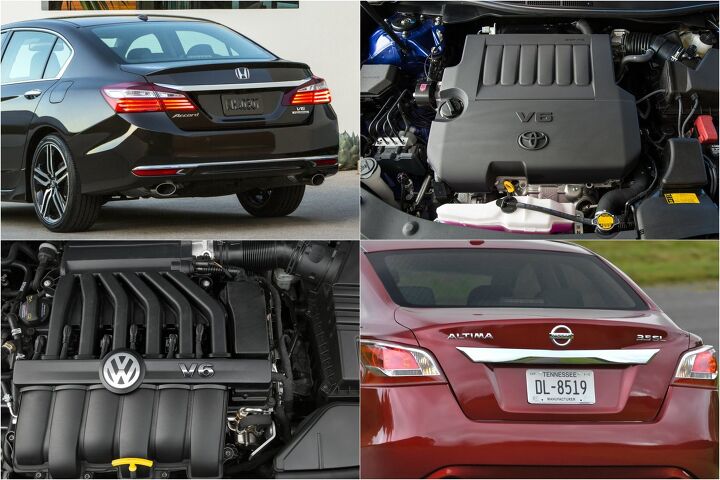














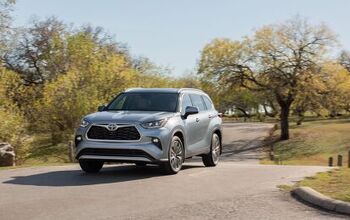
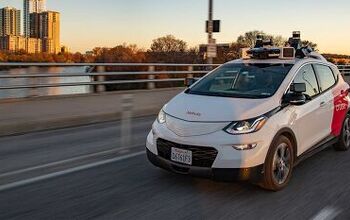











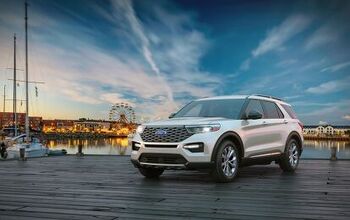
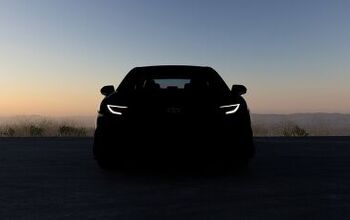
Comments
Join the conversation
wow- i dont think ive ever driven a car with more than 120hp, max, ever, in 48 years. 75 chevelle wagon/350 V8, 1973 laguna 350/V8 were the beater hand me downs in the 80s. on to the 79 diplomat, slant6, VW rabbit convertible, 98 civic, and 2006 scion xA. ive always liked driving "slow" cars fast, so IDK what id do with a 500 scorpion, or similar.
The problem with this article is that the premise is you have a 4 cyl fwd sedan and you put a heavier v6 upfront so of course you exaggerate the handling with more power more weight in the worst possible place. I personally see this as just more justification that an FWD car is a compromised platform. If you have an RWD v6 and replace with a v8 then you may not have the issues you experience with an FWD platform. In some cases we've seen, they replaced an iron block v6 with an all aluminium V8 for very little or even no downside. If the article above restricts itself to FWD cars then yeah, the conclusion is forgone. To go further, our market has an Impreza N/A 4wd sedan. You can also get the WRX with more power. There shouldnt be a handling downside that wasnt already there.